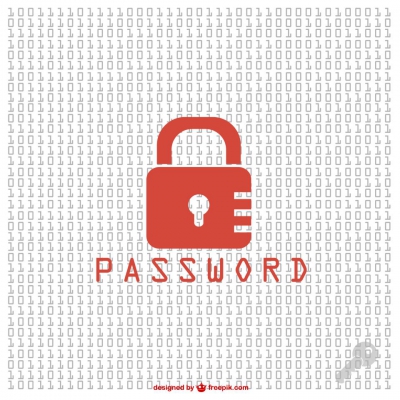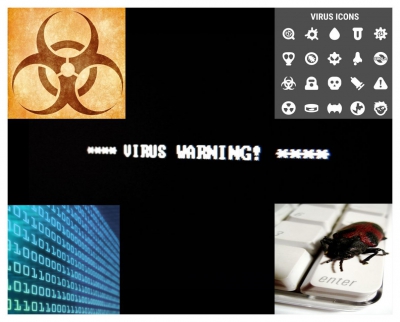- Home
- About Us
- Recovery Services Individual RecoveryEnterprise RecoveryAdditional Recovery
- Software
- Testimonials
- Locations

Data Recovery Expert
Viktor S., Ph.D. (Electrical/Computer Engineering), was hired by DataRecoup, the international data recovery corporation, in 2012. Promoted to Engineering Senior Manager in 2010 and then to his current position, as C.I.O. of DataRecoup, in 2014. Responsible for the management of critical, high-priority RAID data recovery cases and the application of his expert, comprehensive knowledge in database data retrieval. He is also responsible for planning and implementing SEO/SEM and other internet-based marketing strategies. Currently, Viktor S., Ph.D., is focusing on the further development and expansion of DataRecoup’s major internet marketing campaign for their already successful proprietary software application “Data Recovery for Windows” (an application which he developed).
Password Security
 If you're concerned with security, passwords should be a big section of your To Do list. Whether it’s a hacker gaining access to your WiFi network, your protected work files, or your email, using a secure password is important. When you’re considering WiFi passwords, opting for WPA2 veruses WEP is a good move. But using WPA2 without using a secure password isn't enough. If a dedicated hacker is determined to access your WiFi, WPA2 is vulnerable to what is called a "dictionary attack". What this means is that using words found in a dictionary, a program tries each word that fits the length of your password. A sophisticated dictionary attack will also combine words. Using words that aren't found in a dictionary, as well as using numbers or special characters, will increase the possible passwords, making it feasibly impossible for a program to break your password. This also holds true for passwords for anything you use - like email or protected accounts.
If you're concerned with security, passwords should be a big section of your To Do list. Whether it’s a hacker gaining access to your WiFi network, your protected work files, or your email, using a secure password is important. When you’re considering WiFi passwords, opting for WPA2 veruses WEP is a good move. But using WPA2 without using a secure password isn't enough. If a dedicated hacker is determined to access your WiFi, WPA2 is vulnerable to what is called a "dictionary attack". What this means is that using words found in a dictionary, a program tries each word that fits the length of your password. A sophisticated dictionary attack will also combine words. Using words that aren't found in a dictionary, as well as using numbers or special characters, will increase the possible passwords, making it feasibly impossible for a program to break your password. This also holds true for passwords for anything you use - like email or protected accounts.
Secure passwords do not have to be hard to remember, and simply replacing letters with symbols or numbers isn't always enough: @ instead of a, 3 instead of E, ! instead if i, etc. These substitutions are commonly made, and many password cracking programs are designed to incorporate this. When you're thinking about passwords, longer is better. The recommended minimum for a secure password is 10 characters, but that is certainly not a limit. Your particular router should tell you if there is a maximum number of characters your password should be. If you're trying to protect your password from people who know you, not just password cracking programs, it is also a good idea not to use names and dates that are important to you. Birthdates, anniversaries, pet names, etc, are all likely passwords, and easily guessed. Add numbers or special characters in the middle of your password, as opposed to the end.
Dealing With A Virus (Or Determining If You Have One)
 Your computer has a virus. Uh-oh. Now what do you do?
Your computer has a virus. Uh-oh. Now what do you do?
For many people, their first instinct is to take their computer to some place like Geek Squad - a big, name-brand chain that they know and trust, even though they've never taken their computer there to be repaired before. The money spent on advertising by places like this have done their job. This course of action is probably the worse choice you could make. I say this from first hand experience.
A number of years ago, I worked for an internet service provider that was implementing a new service that would help with computer problems that didn't fall inside the scope of the internet help desk. They offered virus removal, program installation and removal, computer tuneup services, and more. If you needed help with something on your computer, and it could be done remotely, we likely offered it as a service. I worked in this department for a number of years, and the number of customer I spoke to that had already taken their computer to a big-name chain repair company for virus removal and yet still had a virus was unbelievable. Many of these type of repair stores (and I call them stores on purpose) are not designed to help you keep your current computer running for as long as it can - they are designed to convince you that you need to buy a new computer. Very few true repairs are actually completed in these types of places, at least in my experience. If you take a computer that won't boot (for argument's sake, let's say it is showing you a blue screen) to one of these big chain places, they are more likely to tell you that the computer is scrap, here why don't you buy this overly expensive replacement? than they are to make the necessary repair, such as replacing the faulty hard drive. This actually happened to my grandfather. He didn't have the money to buy the new computer (luckily), and when I came back to visit, it took me less than an hour to get a new hard drive in and start the process of Windows reinstalling.
So since we've determined that you shouldn't go to a big name chain store to remove this virus you have, what SHOULD you do? You have two options:
Pay a small company or individual to do the repair
or
Remove the virus yourself
More than likely, you have a small computer repair shop that you drive by every day. They tend to appear in small shopping strips. Rarely are they in stand alone buildings. Often, if you pay attention at your favorite shopping locations, there will be a bulletin board that has advertisements for services offered. Small computer repair shops, as well as individuals that work for themselves, often advertise on these type of boards. If you don't know where a computer repair shop near you us, take a look on your next drive to work. You probably pass one daily and don't even notice.
If you're looking to save some money, and maybe learn something, skip the repair guy, and keep reading. You may be able to fix this infestation yourself!
Support for multiple storage tiers
Automated support for multiple storage tiers and SSDs are becoming increasingly important in enterprise solutions for data storage. Their advantages are particularly evident in two important areas: the effectiveness and efficiency of storage.
Tiered storage is a way of grouping data into different categories and assigning them to different types of media for optimum use of resources. The data categories can be distinguished based on the level of performance, frequency of use or the cost / performance.


